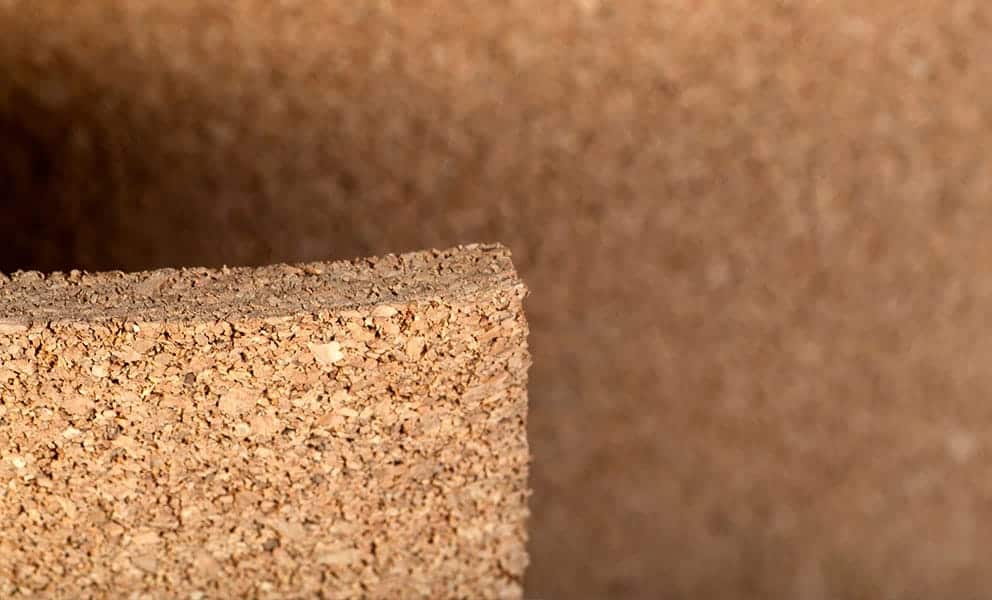
Cork insulation board is the most well-known form of cork insulation on the market. That doesn’t necessarily mean it’s the best, though. In this post, we’ll look at some pros and cons to help you make an informed decision…
Cork is a naturally insulative material, so cork insulation board is a great way to stop heat passing through your walls or other surfaces.
Cork also absorbs sound, meaning insulation board made from this material can help you create a more peaceful environment.
Because it’s naturally breathable, cork insulation board will trap heat without trapping moisture. That makes it suitable for permeable walls that need breathable insulation.
No trees are felled when cork is harvested, and the manufacturing process of cork insulation boards is typically eco-friendly too.
Having originated in hot climates, cork has become naturally resistant to fire. It burns slowly with no flame to prevent fires spreading.
Sounding pretty good so far, right? Unfortunately, there are a few cons to consider too…
One of the biggest cons of cork insulation board is space. While the cork granules are compressed into shape, boards still measure up to 50mm in thickness. When fitted internally, that can significantly impact the space inside a building or room.
That bulk also makes installation difficult outside, where fixtures like gutters, downpipes, and windows may need to be removed and adjusted to accommodate for the additional size of the cork insulation boards.
In either case, installation is difficult and lengthy. As above, that could be down to removing fixtures outside. Or inside, your existing plaster might need to be removed before fitting the cork insulation with new plaster on top.
Did you know that cork is naturally adhesive? Unfortunately, that’s no longer the case once granules are packed into boards or panels. As a result, your walls will need some heavy-duty adhesive to keep boards in place.
Because cork is a non-porous material, insulation boards are water-resistant. However, when several boards are required to cover a wall, there will always be tiny gaps where moisture can pass through.
Clearly, cork itself has plenty of benefits – many of which are present in cork insulation boards. However, you’re still missing out on a few, and gaining a couple of drawbacks in terms of space and ease of installation.
SprayCork allows you to get the best of both worlds. As it is made with granulated cork, it has all the pros of cork insulation board that we’ve listed above. That’s paired with natural adhesive properties and complete water resistance, as it’s applied in one, continuous coat.
Our unique product can be used on both internal surfaces and external walls. Even better, we have a network of approved applicators who are fully trained to apply SprayCork to the highest standards.
Find your local applicator today to arrange a quote, or contact our team for answers to any questions you might have. Call 01484 442 420 or email [email protected].
"*" indicates required fields